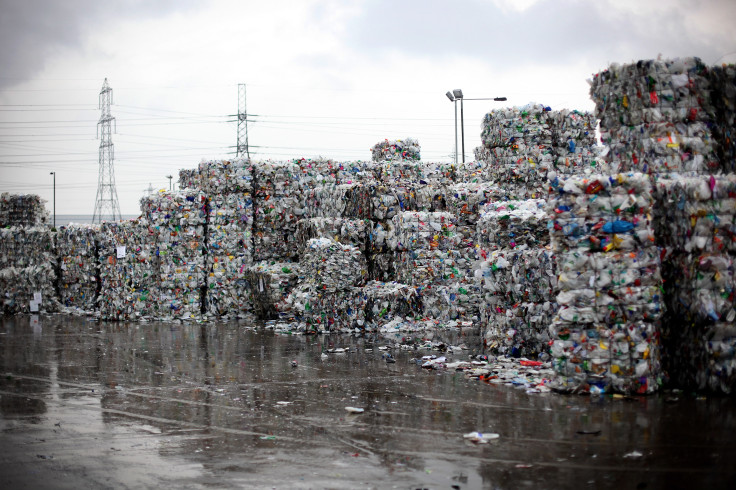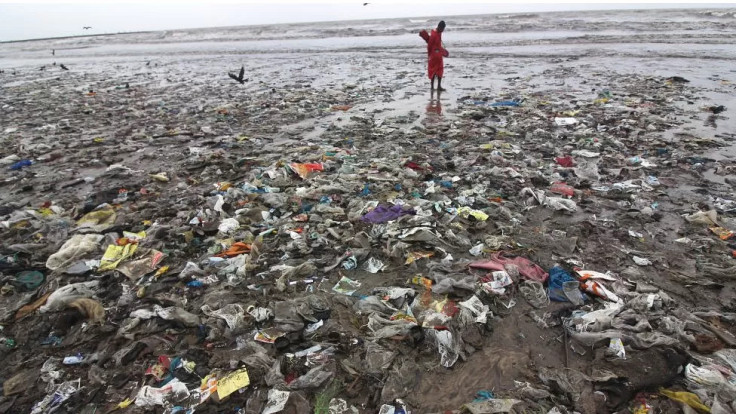UK government 'kicking the plastic can down a polluted road', says climate expert
Climate expert, Steve Hynd, believes the UK government's refusal to end plastic waste exports in the next four years is a big mistake.

The UK Government is "kicking the plastic can down a polluted road," says a climate expert.
Steve Hynd, policy manager at environmental organisation City to Sea, believes the UK government's refusal to end plastic waste exports in the next four years is a big mistake.
A review of the UK's net zero plans, carried out by Tory MP Chris Skidmore and published earlier this year, recommended that the Government move to end the export of UK plastic waste by 2027.
Skidmore's 340-page review came following extensive engagement across the country including more than 1,800 responses and 50 roundtable meetings with businesses, local government, organisations, and other individuals.
The report called on the Government to "drive domestic demand for high-quality recycled materials" and to "ratchet up minimum percentage recycled content targets for a range of products in consultation with industry".
It also urged ministers to set an end date for the import of recycled plastic chips.
However, in its response to the review, published on Thursday amid thousands of pages worth of documents, the Government rejected the 2027 target.
Currently, the UK Government Net Zero Strategy aims to reduce climate-wrecking emissions and decarbonise all sectors of the UK economy, in order to meet its target of net zero emissions by 2050.
The Government said that while it hopes to reduce the UK's dependency on waste export and process more plastic domestically, it disagreed with the time frame suggested:
"We have committed to banning the export of plastic waste to non-OECD countries and plan to consult on a proposal to deliver this by summer 2023.
"This, alongside wider packaging and collection reforms, should provide the industry with the confidence to invest in UK plastic reprocessing infrastructure."
Over the past two years, the recycling industry has seen an unparalleled jump in creative innovation and a remarkable increase in the number of patents filed worldwide relating to new recycling methods.
However, Hynd describes the Government's counter-proposal as a "delayed half measure that doesn't come close to tackling the severity of the problem we face."
The Government plans to continue dumping hundreds of millions of tonnes of plastic waste on other countries that don't yet have the infrastructure in place to manage. This is creating a devastating environmental, social, and health impact for people living there", the pollution expert added.

Plastic waste often does not decompose and can last centuries in landfill, or else end up as litter in the natural environment, which in turn can pollute soils, rivers, and oceans, and harm the creatures that inhabit them.
A new study found that plastic pollution in the world's oceans has reached "unprecedented levels" over the past 15 years - an estimated 170 trillion pieces of plastic, mainly microplastics, are on the surface of the world's oceans, much of it discarded since 2005.
In the UK, It is estimated that households throw away a staggering 100 billion pieces of plastic packaging a year, averaging 66 items per household per week. These are mainly food packaging items, such as snack bags and fruit and veg trays. In 2021 alone, 2.5 million metric tons of plastic packaging waste were generated in the UK.
According to Greenpeace, Just 12 per cent of all this plastic is likely to end up being recycled in the UK.
"Pretending we can sort this with recycling is just industry greenwash," said Chris Thorne, a plastics campaigner at Greenpeace UK.
Despite these worrying statistics, the Government also said that it had no plans to ban the import of plastic that has been recycled, noting that it "supports the operation of an international circular economy for recycled materials."
At the EU level, there is a European Strategy for Plastics in a Circular Economy. This includes a recently agreed Single Use Plastic Directive which will ban specified items of single-use plastic in EU Member States. But, as the UK is no longer an EU Member, it is no longer required to transpose the Directive by law.
In January 2021, the EU also banned most plastic waste exports to non-OECD countries. As this occurred after the UK left the EU, these rules do not apply to Great Britain.
Hynd believes the latest Government announcements are a step in the wrong direction.
"The select committee was crystal clear in saying any ban should be part of a strategy to use less plastic and re-use more of it," he said. "Instead, the government continues to sing from the hymn sheet of big business about increasingly recycling rates that will allow them to increase production and profits."
A recent Global Commitment report from the Ellen MacArthur Foundation spelt out how the big plastic polluters have continued to let rip with their plastic production in a climate lacking the necessary regulation and control.
The report highlighted that while the use of recycled content in plastic packaging continues to rise strongly, having doubled in the past three years, overall use of virgin plastics increased in 2021 back to 2018 levels.
It also noted a lack of investment in collection and recycling infrastructure from participating governments.
Skidmore, who produced the review of the UK's net-zero strategy, told the PA news agency: "Unless you stop this waste going abroad, you will not be able to deliver on the targets that have been set."
He pointed to the progress that the EU was making on the issue, and said that exporting plastic waste to other countries would be seen as "unacceptable" in the future, noting that while the matter raised "moral" questions for the UK, tackling the issue could actually lead to "economic opportunities."
© Copyright IBTimes 2025. All rights reserved.





















